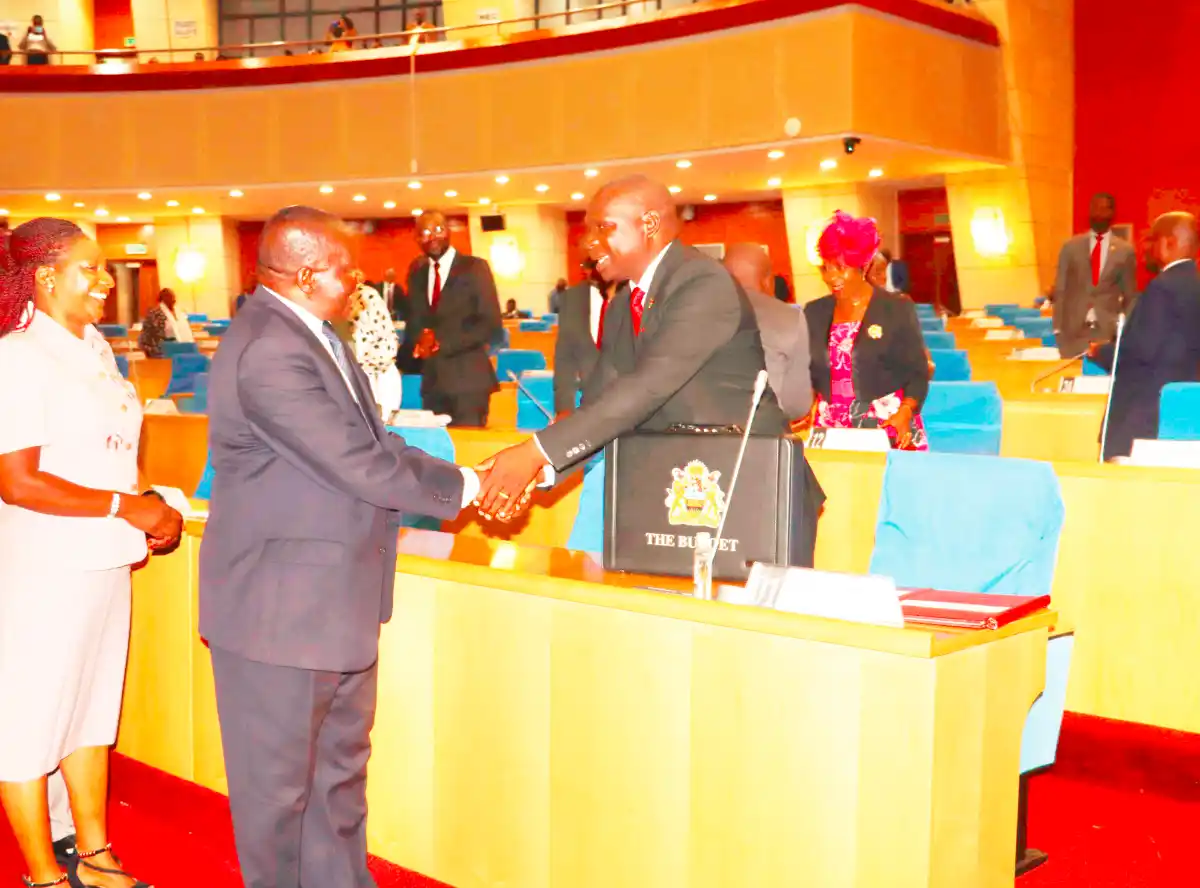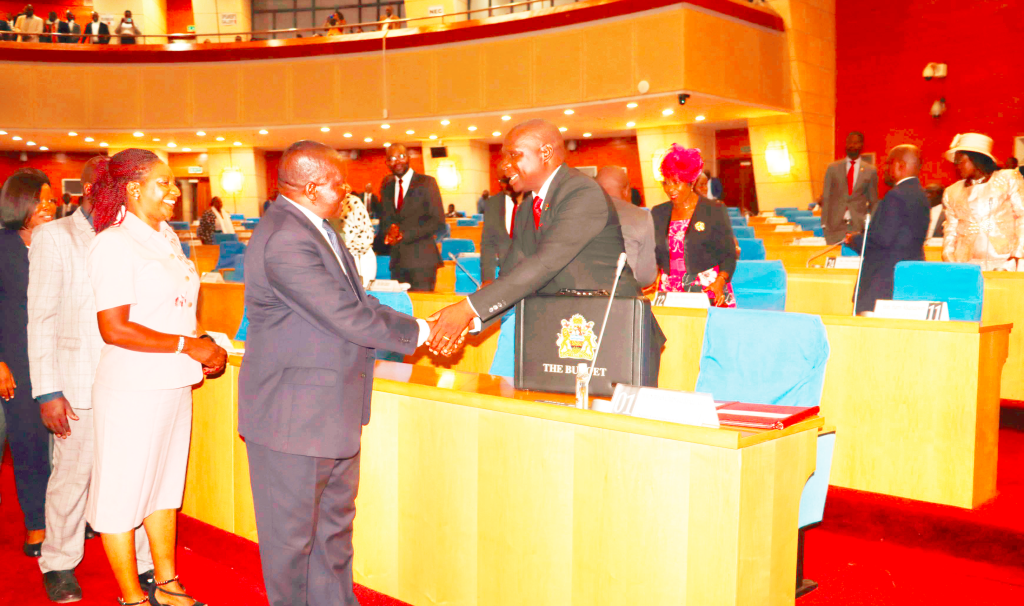
“We believe that government will not willfully disobey the order of the court and will have to explain why the review [of Section 184 of the Penal Code which the police use to arbitrarily arrest the poor] within the period prescribed by the High Court.”—Executive director Victor Mhango, Nation on Sunday, March 3 2024.
At the heart of Malawi’s democratic landscape lies Parliament, where only the voice of the people of Malawi is supposed to count and override lawmakers’ private interests.
Section Eight of the Constitution stipulates that all the 193 members of Parliament hold their positions on behalf of their constituents.
According to the law, the legislators, who hold their positions for a five-year term, have the crucial responsibility of representing the interests of the nation.
However, questions are emerging as to whether the elected parliamentarians really and effectively represent the aspirations of Malawians.
Critics often single out self-interests that sometimes overshadow the broader needs of the people.

Samson Elias, from Phalombe is not alone in this scepticism.
“Some parliamentarians focus more on selfish ends and a luxurious lifestyle than their mandate to create a better Malawi for all, especially the poor majority whose voice often goes unheeded,” he says.
Parliamentarians are also accused of prioritising the wishes of their political parties or masters at the expense of Malawians’ well-being, voices of the voiceless and national agenda.
Intra-party politics is usually cited as a major influence in parliamentary politics as almost two-thirds of the lawmakers belong to political parties.
This puts their decision-making processes, from lawmaking to oversight and representation, somewhat affected by political correctness.
A recent study by the Democracy Works Foundation (DWF) highlights the role and functioning of political party caucuses in strengthening the oversight and legislative functions of Parliament in Malawi.
The findings underscore the importance of recognising and institutionalising party caucuses to foster collaboration within and outside the political parties, thereby enhancing parliamentary effectiveness.
The study was spearheaded by Dr Henry Chingaipe, from the Institute of Policy Research and Social Empowerment.
The researchers recommend capacity building for party leaders in Parliament. This includes training in an array of skills, especially effective negotiations, conflict prevention and management and cross-party caucusing.
The study identifies caucuses as pivotal in shaping the business of the House, determining the legislative agenda and providing a platform for MPs to address crucial issues for the nation.
“Caucuses are avenues that enable a wise leadership to quell down ticking bombs,” reads the report. “They allow MPs to vent bottled-up issues and find the delicate balance between models of representation: trustee of the constituents and agent of the constituents or of the party.”
DWF regional director Dr Augustine Magolowondo says the non-governmental organisation has held engagements with major political parties in Parliament to strengthen and institutionalise their caucuses.
These include Alliance for Democracy, Democratic Progressive Party, Malawi Congress Party, Peoples Party, United Democratic Party and UTM
He states that the dialogue offered the parties an opportunity to reflect on openings they can use to positively influence the oversight and legislative functions of Parliament.
The oversight role is particularly important for lawmakers on the opposition side of the legislature as it involves providing checks and balances to the Executive arm of government.
Magolowonde says: “Through this work, there was a realisation that political parties and their representatives in Parliament seemingly wield power to influence Parliamentary deliberations and agenda. “However, there was also a concern that many times there are some opportunities that are missed through mere politicking.”
The study reveals some of the prevailing challenges within political parties, including top-down decision-making, inconsistent meeting schedules and a lack of coordination.
“The country’s constitutional scheme and the political party system have, at times, resulted in situations where a parliamentary party group does not always have the party leader among its members in Parliament,” he says.
Despite being acknowledged in Parliament’s standing orders and the Constitution, caucuses often operate informally and lack legally binding mandate to represent the voice of Malawians.
In most parties, they are dominated by party leaders, with the rank and file lacking pathways to freely express themselves and their aspirations.
“Political party caucuses remain largely informal structures within Parliament even though the standing orders 35(2), 36 and 90 of Parliament and Section 65 (2) of the Malawi Constitution mention them. This has implications on their existence, as they function using informal rules of engagement, with some inconsistencies in meeting schedules , ” Magolowondo explains.
The study recommends a deep analysis of the dynamics between main party caucuses and parliamentary party caucuses, further strategizing towards enhancing a joint party stance on legislative and oversight agendas in Parliament.
UTM secretary-general Patricia Kaliati thanks DWF for the engagement.
“Regular caucus meetings in the UTM give our members of parliament a forum to discuss matters of national interest,” she says.
Similarly, UDF secretary-general Kandi Padambo underscores the critical role of caucuses in fostering understanding and contributions to national issues, including the National Budget currently under scrutiny in Parliament.
In Malawi, as is the case in most democratic countries, independent oversight agencies have far greater capacity and expertise than Parliament to undertake detailed and forensic scrutiny of government activities.
However, only Parliament has the constitutional duty and authority to call the Executive and government agents to account for their decisions and actions.
DWF is engaging political parties to revitalise democracy in Malawi.
This is part of the five-year Parliamentary Support Programme supported by USAid, the US Agency for International Development ID-funded. By strengthening political party caucuses, the initiative seeks to empower parliamentarians to fulfill their constitutional mandate of legislative, oversight, and representative functions, ultimately contributing to good governance in the nation.






0 Comments